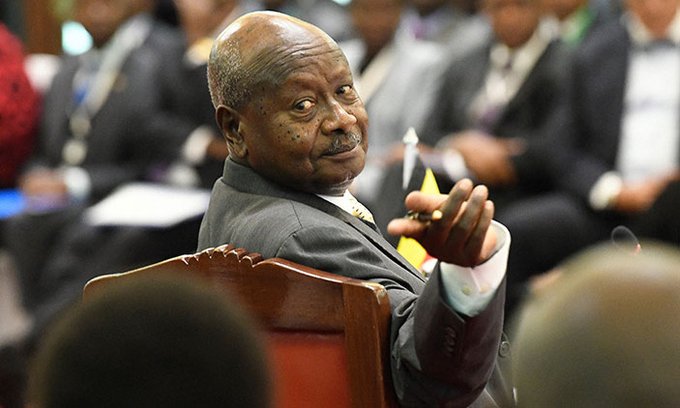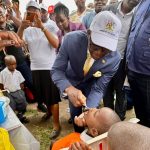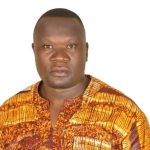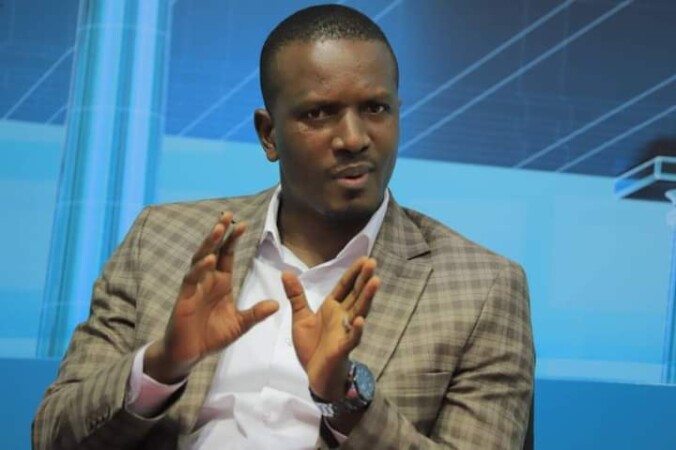Uganda is a country not averse to controversy. For instance, it has the largest number of MPs, administrative units, a massive Cabinet, and a sizable team of advisors. The list is endless. All of this reflects corruption and patronage. Corruption is now endemic, widespread, and deeply embedded within the fabric of governance and society. It is condoned, institutionalized, normalized, and accepted; those who commit it often do so with impunity, as long as they demonstrate unwavering support and loyalty to the party leadership. The government’s handling of corruption appears mediocre.
Ugandans standing up against corruption should be treated with dignity because they hold the power. These are citizens who vote, not merely “Basukulu” (grandchildren). During the war prior to the capture of power, the NRA was known to raid banks, calling it “confiscation.” This was the genesis of corruption and set a bad precedent. The late RDC of Greater Mbale, Victor Bwana (RIP), argued that in some cases, such actions were justifiable due to wartime conditions. However, the NRM has strayed from its core principles, transforming from a people’s movement into an anti-people movement.
The NRM, UPDF, and police have resorted to using coercive and brutal force to deny citizens the space and right to dissent. We cannot all think the same; this is a natural phenomenon. Today, the NRM is drifting away from its origins and slowly adopting a North Korean style of governance. The party is betraying the fundamentals it established after the bloody revolution. People overwhelmingly joined the revolution because of the pro-people ideals and values that the NRM espoused, including restoring freedom and respecting fundamental human rights, such as the right to associate, express opinions, and live free from torture and coercion.
The NRM fought for democracy and caused a fundamental change, while fighting corruption was a key ideal that motivated many young citizens to join the struggle in Luwero. These two issues are essential for good governance, as they safeguard democracy, accountability, and overall governance.
What has gone wrong for the once-popular NRM to turn against itself? The gap between NRM leadership and the masses is steadily widening and could soon lead to anarchy. How safe will NRM leadership be if it continues to resort to brutal, repressive methods? What has caused the NRM leadership to become arrogant and intolerant of criticism and dissenting voices? Is the NRM becoming autocratic?
Foreign funding has always been present in both government and private sectors; investor money is foreign funding. Money for development is often foreign-funded, and even the government relies on foreign aid. Therefore, receiving support from international partners is neither new nor illegal. It is not criminal for foreigners to support those trying to expose the endemic graft crippling the economy and the country where internal efforts have failed.
There is little difference between youth in Kampala and those in Nairobi, Abuja, or Dhaka; their grievances are largely similar. Ugandans have a right to peacefully stand up against bad governance, and the government must stop protecting the corrupt while denying corruption at all levels without fear or favor. The power lies with the people and should be appreciated, not scorned.
A political wave is sweeping across the globe, demanding change from the youth; in Africa, it is known as the Pan African Youth Movement. It is characterized by anonymity, allowing its leaders to avoid direct targeting and incarceration, making them leaderless, party-less, colorless, and amorphous. These young people have realized they possess numbers. Even when President Museveni began his revolutionary and liberation activities, he was a young man. Youth are in their prime and most productive years; thus, he should not ignore them.
Protests, uprisings, and riots are often caused by anger, which is vented through demonstrations. Such demonstrations erupt from simmering frustrations when people’s rights are stifled, and outbursts can be spontaneous and volcanic. The best solution is to address the government’s inadequacies and the demands of protestors by listening to them through dialogue.
Our current situation shows signs of fascism, with security forces appearing superior to the very people who pay their salaries. Is this a matter of disrespecting the law or deliberately ignoring the rule of law within government institutions like the UPDF? The UPDF is meant to be subordinate to civilian authority, with a cardinal role to protect the people and their property. This pattern of repression, where the army is called in to handle situations better suited for the police, is concerning.
Why the panic? You cannot intimidate a hungry and angry person into submission. Repression often means resorting to militaristic or coercive measures. Is pointing guns at peaceful citizens the best way to solve issues? Instead of investing in coercive equipment, the government should create job opportunities.
A pro-people army or police force will always allow citizens to exercise their fundamental human rights, particularly in the fight against economic saboteurs and looters. Unfortunately, the President categorizes thieves into groups: those who steal by accident and those who are intentional thieves. The former may receive amnesty as long as they do not invest their stolen money abroad. Such a dismissive attitude towards the laws and regulations against corruption not only frustrates those committed to fighting corruption but also sends a signal to thieves that they can expect protection from the President.
Handling the fight against corruption in a biased and selective manner tarnishes the NRM’s image and portrays it as mediocre. Justice must be blind; it should not shield friends or relatives but can only provide amnesty and forgiveness after a sentence has been handed down by a court of law.
Militarism against civilians is troubling. Why does the government consistently deploy armored personal carriers and other military weapons against peaceful citizens with genuine grievances? This is shameful. Manhandling a lone peaceful protestor is equally disgraceful. These citizens responded to the President’s call to fight corruption but have found his stance on the issue transactional, unclear, and contradictory.
Corruption is not new in Uganda; it is now endemic and cancerous. What is different this time is the emergence of a new breed of demonstrators involved in these anti-corruption protests. Many are educated individuals—lawyers, journalists, teachers, doctors—who are standing up. The so-called “riff-raff”—boda boda operators, taxi touts, idlers, jobless individuals—were not involved this time. Imagine what could happen when these two groups come together in protest against continued repression.
The youth have started to conquer fear and intimidation, marking significant development in the country. Historically, demonstrations were left to those labeled as goons; fear had prevented many from confronting injustice. Citizens have been pushed against the wall, and they are now fighting back. This trend is mirrored in Bangladesh, Kenya, South Africa, Nigeria, and Venezuela, where people are rising up against bad governance and injustice.
General Otafiire’s call for young people to stand up for their future is timely. Although some may implicate him in corrupt scandals, he has acknowledged that corruption causes economic inequalities and disparities that can lead to instability. His pro-people stance may earn him forgiveness from the public.
I’m increasingly worried that the President is being fed misleading and false intelligence. The people providing him with information are trained not to offend him, resulting in doctored data that aligns with his views. These young, educated citizens, who have endured hardships to achieve their educational goals, find themselves stuck without opportunities due to corruption. Uganda’s economy is struggling, leaving many behind.
Problems began in the late 1980s when the IMF and World Bank imposed experimental economic structural adjustment programs on Uganda. The government rushed to implement these policies without adequately assessing their viability, leading to rampant corruption. The swift privatization of the economy, often at giveaway prices, did not consider the negative impact on the majority poor. Economic disparities have since escalated, and the currency has remained weak since the reform in 1987.
The youth are not playing with fire; they are dealing with fire itself. The economic system is exploitative and crippling, benefitting only a select few while failing to provide services to the majority. There is nothing more painful than graduating without employment. As a result of desperation, they are driven to demonstrate, which is a constitutional right—not bad manners.
Ugandans deserve answers from the NRM government; otherwise, it sends a troubling signal ahead of the upcoming general elections. The citizens are simply seeking a stable future and accountable leadership that listens and cares about their needs—not threats as if they are squatters in their own country.
The trust between the people and the government is eroding, reaching dangerous levels. I urge the NRM leadership to reflect and make necessary corrections and reforms in governance before it is too late. Power is overly centralized and vested in one person, increasing the chances of poor decision-making.
It is dangerous for a mass political party to rely solely on the ideas of one individual; no one possesses a monopoly on knowledge. Knowledge is diverse and comes from different sources. The President must understand that even a poor, ordinary person can have valuable ideas. If only a select few had good ideas, what would happen when they are gone? Life continues for a reason—continuity and diversity are essential.
For example, Hon. Sewungu’s suggestion to create four-lane roads to reduce accidents is not childish thinking; as Uganda moves toward middle-income status, six-lane roads may even be necessary. Embracing a diversity of ideas is not an offense; it is healthy for the nation.
There is a need to improve internal checks and balances within the party to minimize mistakes in the future. Collective leadership is beneficial for decision-making. We recognize the President’s passion for power; however, this has caused him to lose his original patriotic and revolutionary spirit. He perceives demonstrations as threats to his position.
The consequences of overstaying in power have burdened both the NRM and Uganda. Many party members fear expressing themselves openly, just as they would in North Korea. The President is out of touch with the realities of everyday life for the common citizen. He must change his political strategy and engage with ordinary people to understand their suffering and the challenges they face in this economy.
People have sold family properties to educate their children, yet these graduates remain unemployed. Child poverty is rampant in schools, with children going hungry in government institutions. The responsibility of feeding children in these schools lies solely with a planning government.
Mr. President, people are in dire straits, reminiscent of the conditions that prompted you to start a war. This governance failure could lead us back to anarchy, echoing the chaos of the early 70s and 80s. A lack of government will to fight corruption will only push more people onto the streets. If the issue of corruption is not addressed swiftly, we are likely to witness more protests. These movements are organic and growing daily; threats will only exacerbate the situation. Dialogue is the way forward.
It is time to remove the “rotten tomatoes” from your ranks and preserve the support of your young voters. Unless the President breaks free from the grip of the corrupt, we are bound to see more unrest.
As for Parliament, one wonders why it remains silent on the pressing issues of corruption. The failure to debate allegations against its members raises critical questions: Can the NRM survive and thrive without corruption? Is the President siding with the corrupt against his own people?
We must learn to be sensitive to the cries of the people. How can a country that has achieved middle-income status fail to feed its schoolchildren? This is not rocket science; it requires patriotism, frugality, and good planning.
I implore you, Mr. President, to retract threats of violence. These citizens are your voters, your creation. The current challenges are yours. Let us remember that you once called on Ugandans to increase their families to create a larger market, saying in Luganda, “Muzaale, okusomesa kwange!” Now people are reproducing, but jobs are lacking, and there is insufficient food in government schools.
We have come this far, 40 years in power. The NRM should appreciate the generosity of its voters rather than threaten them. Finally, have we allowed selflessness, patriotism, good governance, and integrity to be overtaken by selfishness and greed?
Paul Polly Mugoya
Concerned Citizen
Former Chairman FDC Greater Sironko District
Former Chairman Elders Forum, BCU
Former UPM Youth Leader Bugisu
FRONASA Veteran
NRM National Delegate / NRM Opinion Leader




















